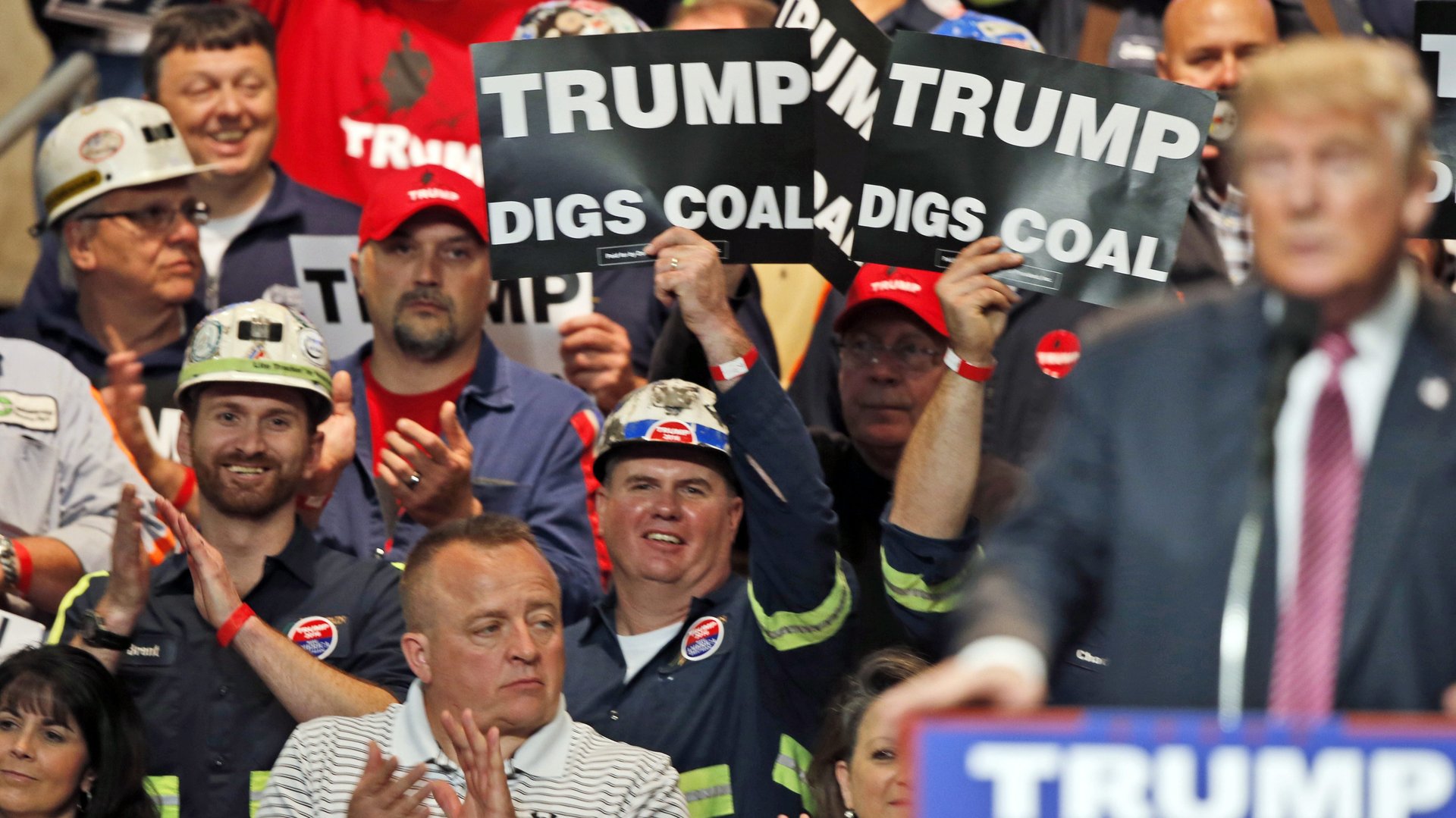General Motors’ sustainability chief says Trump can’t stop the green energy boom
As Donald Trump mans his cabinet with climate deniers and skeptics, green activists have been putting together battle plans.


As Donald Trump mans his cabinet with climate deniers and skeptics, green activists have been putting together battle plans.
General Motors’ sustainability director David Tulauskas has reassuring words for them: renewable energy has reached a tipping point where it is rapidly becoming cheaper and more reliable than carbon. So there’s nothing Trump can do to get the world’s third biggest automaker to go back in time to fossil fuels: “Four years, eight years of whoever’s the president of the United States really has no impact on our commitment to renewable energy,” he said, discussing GM’s promise to be 100% powered by renewables by 2050.
Even if Trump’s fervently climate denialist EPA chief Scott Pruitt were to try to cut government subsidies for green energy, it couldn’t kill the market forces moving in favor of renewables. “We don’t need the old type of policy around incentives to support a nascent technology to sort of incubate it. We’re well beyond the incubation period. Renewable technology is here, it’s proven, it’s reliable, it’s affordable,” Tulauskas said. “Wind energy no longer necessarily needs credits…it’s some of the cheapest energy you can find anywhere in the world. So a Trump administration really has no impact at all.”
One of Trump’s leading campaign promises, which helped net critical wins in Pennsylvania and Ohio, was to bring back millions of coal jobs. But, based in Detroit at the heart of the rust belt, Tulauskas said he doesn’t see how the incoming administration could revitalize the ultra-carbon polluting industry: “I just think that boat has sailed,” he said. “All states and all utilities have plans to decommission existing coal plants. For example, here in Michigan…there’s gonna be nine coal power plants decommissioned over the next ten years. So I think plans are already in place; those decisions have been made.
“Just look at the macroeconomic signals; look at the market capitalization of energy companies…they’ve gotten hammered in the stock market,” he said. “Institutional investors are divesting from carbon intensive companies left and right.”
GM has a large mountain to climb in jumping from its current level of 4% renewables (the figure is 10% for the US) to being fully green in 30 years. But the company has been putting its money where its mouth is—announcing in November it will buy 50 megawatts of energy from a Texas wind farm to be opened in 2018. This would power 16 US facilities and bring up its global renewable usage to 6%, Tulauskas said.
The carmaker isn’t alone in the promise—83 corporate giants including Apple, Google, Ikea, Unilever and Nestle have signed up to a pledge to go 100% renewable through the global business initiative RE100, led by The Climate Group in partnership with CDP. Given that around half the world’s electricity is used by private companies, according to RE100, the weight of market forces doesn’t look like it can be stopped.
“We’re gonna get to 100%—and so many other companies, in so many other countries are gonna get there. I think that one policy, one leader in one country is not gonna change the trajectory around renewable energy,” Tulauskas said.
The question for environmentalists is whether they’re getting there fast enough.